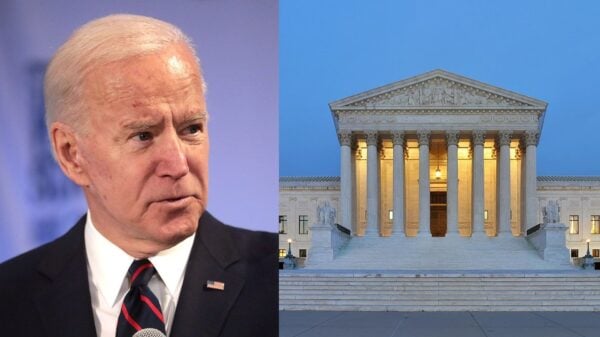The highly controversial Crime and Public Order (Scotland) Act went into effect on 1 April, aiming to tackle hate crime in Scotland. However, the nation is clearly divided on the new bill, as many critics argue it will be used in various ways to limit freedom of speech. Many believe the law is simply the next step towards the nation’s untimely demise, as Scotland itself is no longer striving to remain a free country.
The Hate Crime and Public Order (Scotland) Act will allow the courts in the country to put people in jail if they say, write, or post something that could “stir up hatred” against minority or protected groups in the country. This means if officials of the law decide a member of the Scottish public has engaged in speaking cruelly of an individual because of their race, gender identity, disability, or religion, they may face criminal charges. This may include a prison sentence of up to seven years. Immediately after the bill was first announced, many people living in Scotland were quick to critique the bill, claiming that the new law would make it incredibly challenging for people in Scotland to express their opinions without fear of being criminally charged. Ultimately, many believe they will lose their freedom to speak. These critics believe the bill intends to target anything someone says that may be controversial.
While the public appears to be against the new law, many Scottish policymakers are in full support of the act and have since pushed back on this criticism. Humza Yousaf, the First Minister of Scotland and the Leader of the Scottish National Party (SNP), has claimed critics are wrong about what they say the act will do. According to Yousaf, the act will not prevent any expression of potentially controversial views. The act will only allow the courts to go after people who say things that are expressed “in a threatening or abusive way that is likely or intended to stir up hatred.” Yousaf’s words aim to convince critics who suggest the new law interferes with one’s freedom to speak that there will be no repercussions for speaking one’s opinion so long as it doesn’t harass an individual.
Supporters of the law argue the new law doesn’t limit freedom of speech in any way. Instead, they claim the bill only goes after hate crimes. Many leaders in the Conservative parties in Scotland have been against this law from day one. Douglas Ross, the Scottish Conservative leader, has said that innocent people could end up being investigated. “People like J.K. Rowling could have police at their door every day for making perfectly reasonable statements,” Ross said. According to Robbie de Santos, the director of campaigns and human rights at Stonewall, the law was implemented to focus solely on pushing back against violence aimed at protected groups. De Santos furthered this idea. “This is no more true than stating that the existing law has criminalized the criticism of religion. This kind of misrepresentation about the act and its purpose only serves to trivialize the very real violence committed against us in the name of hate,” de Santos stated.



















